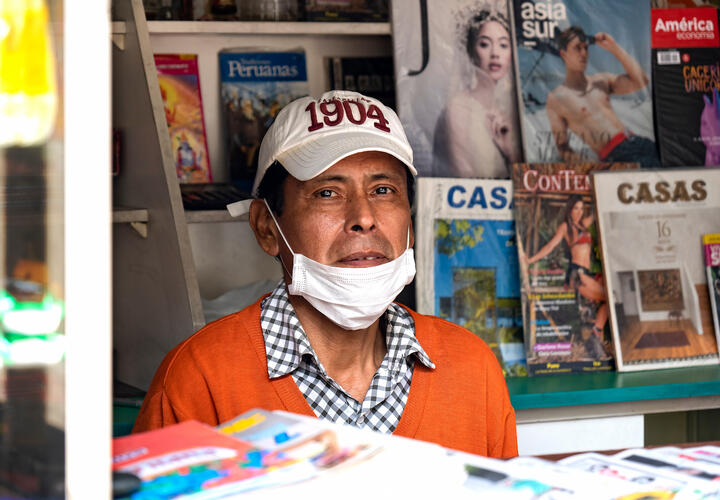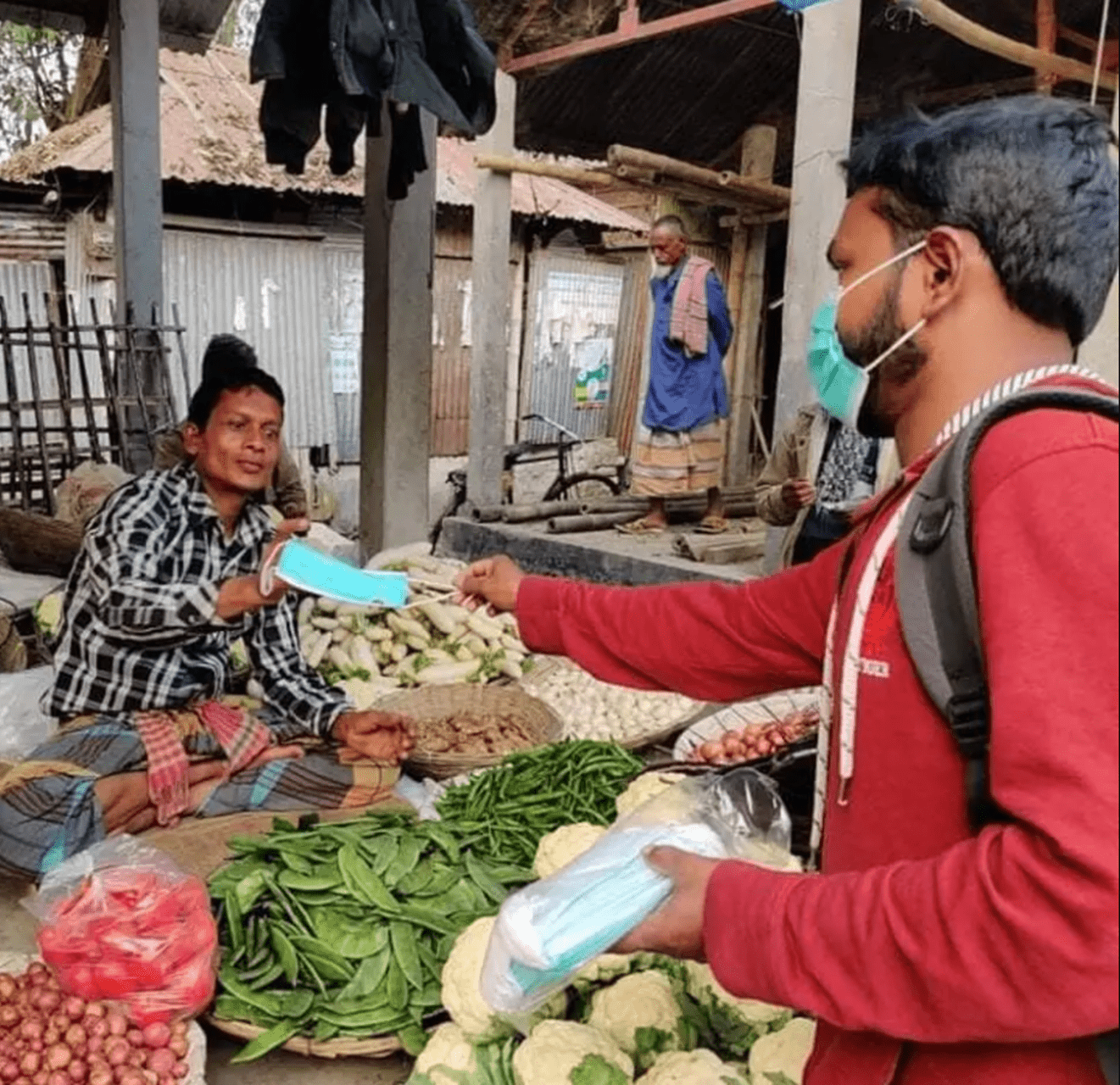Neilson, Humphries, and co-authors examine the effect of government Covid-related funding on small businesses in Latin America

Information may be the vital link between government Covid support and small businesses in Latin America
Governments in Latin America initiated a wide array of relief programs to support small businesses during the Covid-19 pandemic. However, findings from a recent study of small businesses in the region suggest that the impact of this funding may have been limited due to communication and design challenges.
Smaller firms in the region were less likely to be aware of, apply for, and receive aid than slightly larger firms, according to a paper in the Journal of Development Economics by Christopher Neilson, Yale professor of Economics and Global Affairs and an EGC Affiliate, John Eric Humphries, Assistant Professor of Economics, and co-authors Maria Elena Guerrero-Amezaga, Gabriel Ulyssea, and Naomi Shimberg, a Yale undergraduate. The paper frames a forthcoming multi-country randomized controlled trial testing ways to increase uptake of Covid-19 business assistance.
Latin America and the Caribbean (LAC) was one of the regions worst hit by the Covid-19 crisis. It is estimated that the region recorded 20% of global cases and a third of total deaths during the pandemic. Historically, small and medium-sized enterprises (SMEs) have been integral to employment in LAC, comprising 99.5% of firms in the region and generating 60% of formal productive employment. Around 55% of the region’s population – 140 million people – are involved in informal employment.
It follows that aid programs targeting small and informal businesses were crucial in early responses to the COVID-19 crisis. When the first effects of the pandemic struck, the governments in these countries responded with extensive programs designed to lessen the burden on small businesses, in some cases totaling up to 7% of GDP.
But the study by the Yale-based team, partly funded by the EGC and launched in March 2020, suggests that these programs had limited impact on small businesses.
The research team conducted a survey of over 30,000 small businesses – defined as firms with up to 5 full-time equivalent employees – in eight countries (Argentina, Bolivia, Brazil, Chile, Colombia, Dominican Republic, Peru, and Mexico). From responses to Facebook and Instagram ads, the team tracked how small businesses were faring during the pandemic, their expectations about the future, and their awareness of, and applications to, assistance programs. Two follow-up surveys took place in summer and winter of 2020, enabling the team to collect repeated cross-sections of data.
In an EGC interview, Humphries said of using social media to draw a sample: “This certainly has limitations, but it also allowed us to run surveys when the government was struggling to turn around new facts about small businesses.”
Initial findings show that smaller firms were less informed about programs that could benefit small businesses – especially compared to firms in the US. They were also less likely to apply for these programs and less likely to receive aid. This effect was especially pronounced in very small firms (fewer than five full-time equivalent employees) compared to slightly larger firms (5-10 full-time equivalent employees). This gap between very small and slightly larger businesses also widened over course of the pandemic, with an increasing negative correlation between firm size and awareness of, application for, and access to aid. The analysis shows that these effects were particularly severe for informal firms and those operated by less-educated owners. Humphries said that years of schooling was positively correlated with their outcomes, and the results indicate that support was simply “not reaching smallest businesses run by people with less education.”
In the rush to provide relief, policy discussions sometimes lacked nuance, Humphries said. “The more subtle side of this debate looks beyond awareness and asks how well targeted programs were for small businesses.” He explained that most policies specifically targeting small businesses listed formality as a basic eligibility requirement, leaving individuals running small, informal businesses eligible only for general public assistance. Also, bank accounts were the dominant medium through which aid was administered, and informal firms typically have less access to such formal financial systems.
The findings indicate that the programs had limited effect in reaching the smallest and most vulnerable businesses run by people with less education. “It’s not that the aid wasn’t impactful,” Shimberg explained in a separate interview. Indeed, the findings suggest that firms that did apply benefited from the programs. “Because of information frictions, people might have been aware of programs, but they didn’t know how to go ahead and apply, or applying was too complicated.”
Coauthor Maria Elena Guerrero Amezaga, a PhD candidate at UCLA, noted that Covid relief credit lines in some countries ran out quickly and this, along with information frictions, contributed to the relief programs’ limited effect.
These results highlighted by the paper have wide-reaching implications for the region as it grapples with the fall-out of the pandemic. The level of economic activity in the LAC region contracted by approximately 7 percent in 2020, more than any other region and more than double that of the global average. At least two million micro- and small enterprises in the region have closed permanently.
Largest study on masks and Covid-19 demonstrates their effectiveness in the real world
Results from EGC affiliate Mushfiq Mobarak and coauthors’ recent paper clearly demonstrate that mask usage reduces Covid-19, highlighting how masks should continue to play a vital role in fighting the pandemic.

An inclusive team of researchers
To carry out the study, the research team compiled a database of over 400 economic and health policies implemented in the region, collecting information on every pandemic-related aid policy in the eight study countries that had been released since March 2020. It was compiling these policies where undergraduate Shimberg first cut her teeth on the project, working together with Guerrero-Amezaga, then a member of the Tobin Pre-Doctoral Fellows Program at Yale. Shimberg, an Ethics, Politics and Economics major, began working with Humphries in the summer of her sophomore year.
Humphries acknowledged how rare it is that an undergraduate would be listed as a coauthor on a journal article. “We reached the point where there was no way she couldn’t be a co-author,” he said. “She clearly contributed to every part of the research process, not just doing the work but contributing to the findings of the paper in a way that certainly warrants co-authorship.”
“I mainly feel lucky for getting to work with such incredible economists so early in my journey”, said Shimberg, who ultimately took two semesters off during the pandemic to work full-time on the study.
The paper is one component of a larger project designed an information intervention designed to provide firms in the US and eight other countries targeted information about policies for which they were eligible. Designed as a randomized controlled trial (RCT), the research evaluates the effect of the programs introduced to support small businesses through the pandemic, which in some countries totaled a few percentage points of GDP. The US portion of the research program is funded by the Tobin Center for Economic Policy. Results from the RCT are forthcoming.
Research Summary by Emma Lambert-Porter